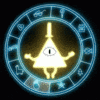I'm imaging from what I know of Gears/Saga that it will go a lot more into the themes of religion and such. From what I know(Haven't played either game/Trilogy yet) the Xeno games prior Xenoblade were basically a philosophical guide on religion. In Comparison, Xenoblade's big themes feel like..baby content. Feel free to correct me, Ryudo, as I know nothing.
Xenoblades story is considerably deeper in that regaurd than either gears or. Well, gears, Saga fell flat on its face on that end, going for melodrama out the wazoo instead, but leaving the philosophy incredibly shallow.
Xenogears, and to a lesser extent, saga, was a pretty straight forward and surface level use of Friedrich Wilhelm Nietzsche's philosophy works, hampered by the fact the game had to be translated, xenogears was only half finished, and saga was... Well, Namco bandai.
Xenoblade is based on several different philosophies, from actual old time philosophies, to theoretical metaphysics of the 16-17th century, to modern day computer functional programming, and of course, religion that all actually used the same word in a similar context: The monad.
The main basis was Gottfried Leibniz’s most famous work, 'The Monadology'. Ill just give a breif overview of relevent bits that will be familiar to players of Xenoblade:
Every element in existence is made up of a single substance, the simplest substance that can not be broken down any more. This single unit, is known as the monad. In Xenoblade its ether. Different arrangements of the monad within space comprise different elements.
He attempted to bring together the clashing ideals of Teleology, Mechanism philosophy. As youve likely already guessed, when you go to the wiki pages you will basically be looking at the philosophical versions of the bionis and the mechonis.
Philosophically, The Monadology arrived at several conclusions, that play heavy themes in Xenoblades story.
1. Idealism, since it denies things in themselves (besides monads) and multiplies them in different points of view. Monads are “perpetual living mirrors of the universe.” - You may be hearing faint echoes of several lines of dialouge after reading this, its ok, its normal.... I think.
2. Metaphysical optimism, through the principle of sufficient reason, developed as follows:
a) Everything exists according to a reason (by the axiom "Nothing arises from nothing");

Everything which exists has a sufficient reason to exist; -Sound familiar yet?
c) Everything which exists is better than anything non-existent (by the first point: since it is more rational, it also has more reality), and, consequently, it is the best possible being in the best of all possible worlds (by the axiom: "That which contains more reality is better than that which contains less reality"). -Cue about a bazillion lines from Xenoblade that are now popping into your head.
But wait, theres more. Xenoblade also incorporates modern usage of the Monad, its use in functional programming.
'In functional programming, a monad is a structure that represents computations defined as sequences of steps: a type with a monad structure defines what it means to chain operations, or nest functions of that type together. This allows the programmer to build pipelines that process data in steps, in which each action is decorated with additional processing rules provided by the monad.[1] As such, monads have been described as "programmable semicolons"; a semicolon is the operator used to chain together individual statements in many imperative programming languages,[1] thus the expression implies that extra code will be executed between the statements in the pipeline. Monads have also been explained with a physical metaphor as assembly lines, where a conveyor belt transports data between functional units that transform it one step at a time.[2] They can also be seen as a functional design pattern to build generic types.[3]'
http://en.wikipedia.org/wiki/Monad_(functional_programming)
Basically, its the computer programming version of the concept of ether (The monad in greek philosophy/Leibniz's monadology)...
The Monado wasnt a sword, it was in I/O interface with the AI that could control the placement of, well, ether 'atoms' if you will. A spot in space with an ether atom was a 1, a spot without it was a 0, chaining/nesting these arrangements of these 1's and 0's determined the make up of the world. If you could see what ether was where, you could tell where it was soon going to be, and if you could edit them... Yes, this is exactly what alvis was talking about during the telethia intro fight.
Shulk wasnt able to weild the monado like no other on bionis because he was the chosen one. He was able to weild the monado because he was the only sentient bionis being who aquired the capacity to begin to comprehend functional computer programming logic.
Dunban was able to get as far as he did through sheer discipline and focus, but his lack of understanding likely began to, well, randomly edit his arm until it lost function.
Shulk seeing the future, was simply reading the code of the world zanza programmed, and seeing where it went. Shulk slicing things with the monado was literally editing them apart.
And perhaps most impressive of all, was that the concept of the monad/monadology, went beyond the story, dialogue, and plot. The gameplay itself was saturated with the concept.
The simplistic poo pooing of Xenoblades story looks like a cut and dry case of the Dunning-Kroger effect everytime I come across it. The detractors never demonstrate more than shallowest surface level comprehension of the story, or its themes.
http://en.wikipedia....g–Kruger_effect
Xenoblade, will be very, very, hard to top.






















